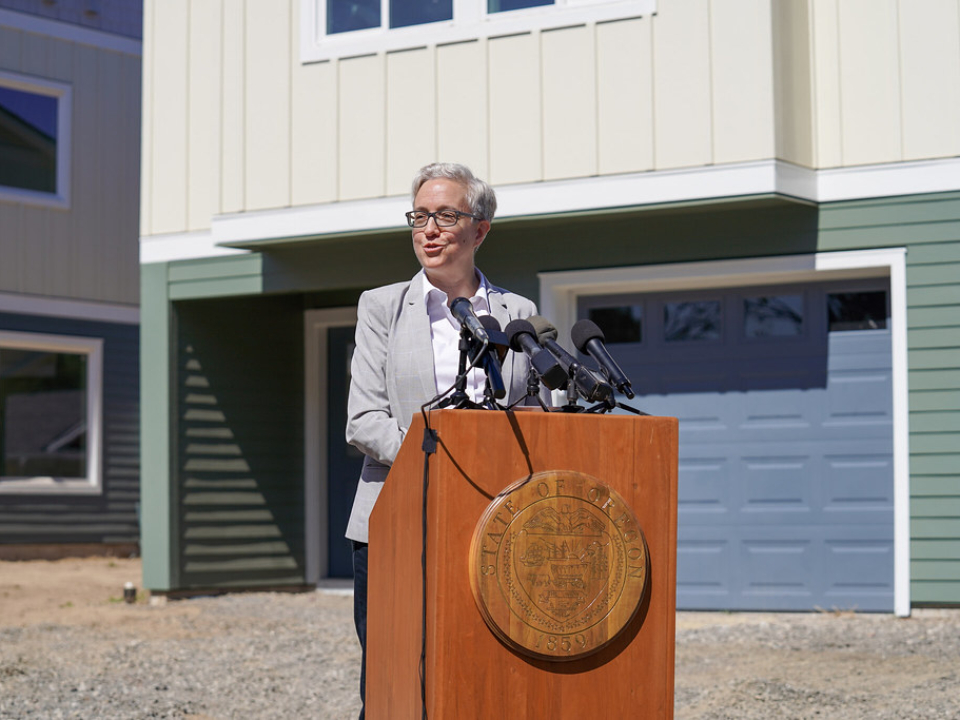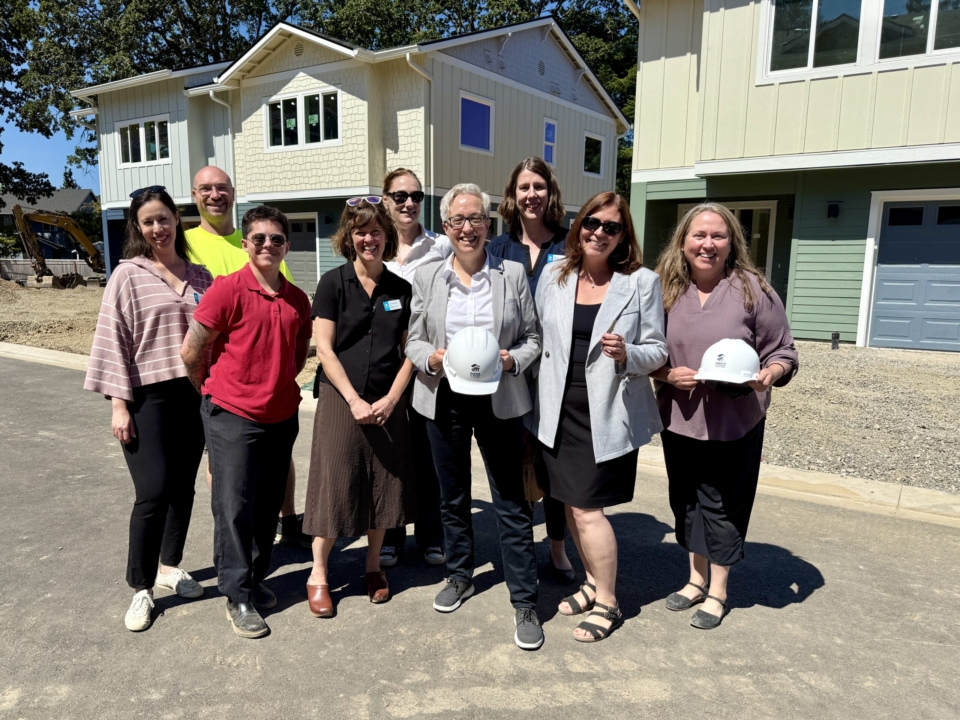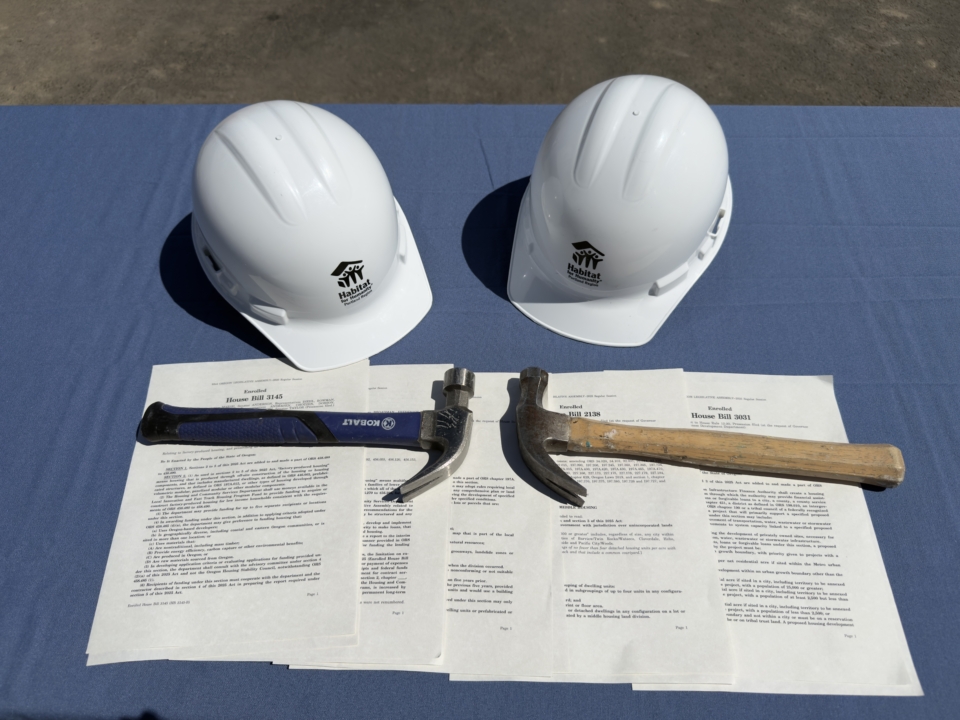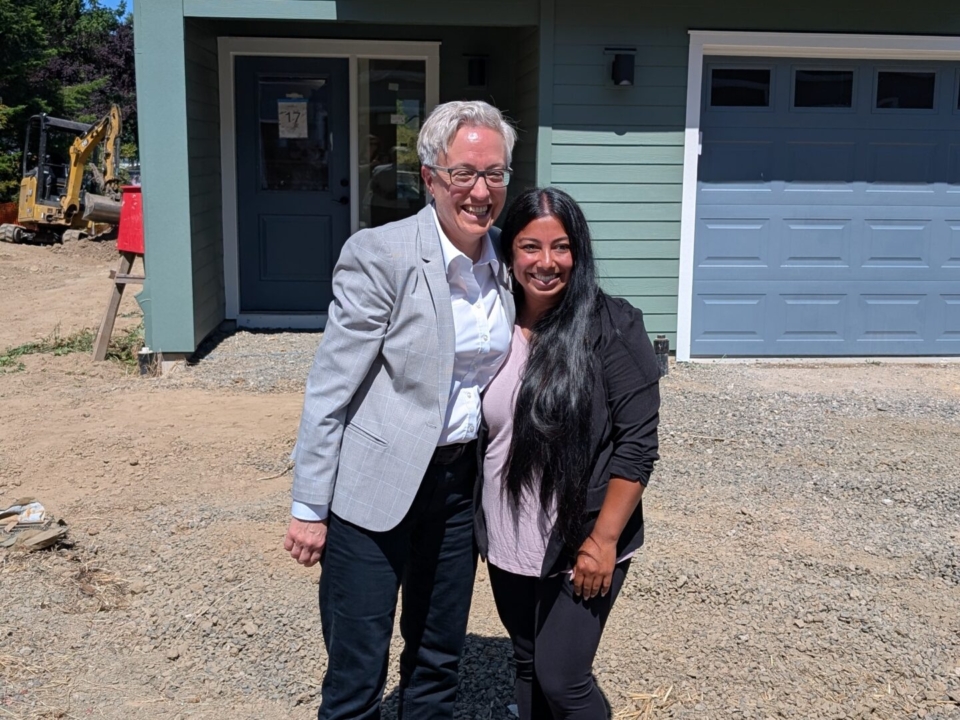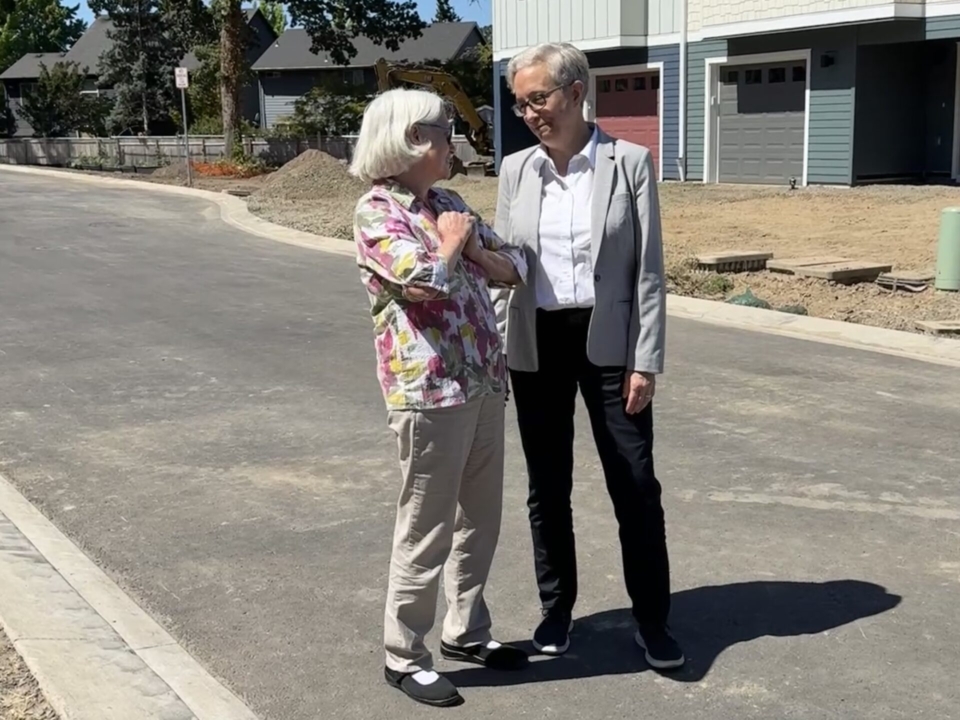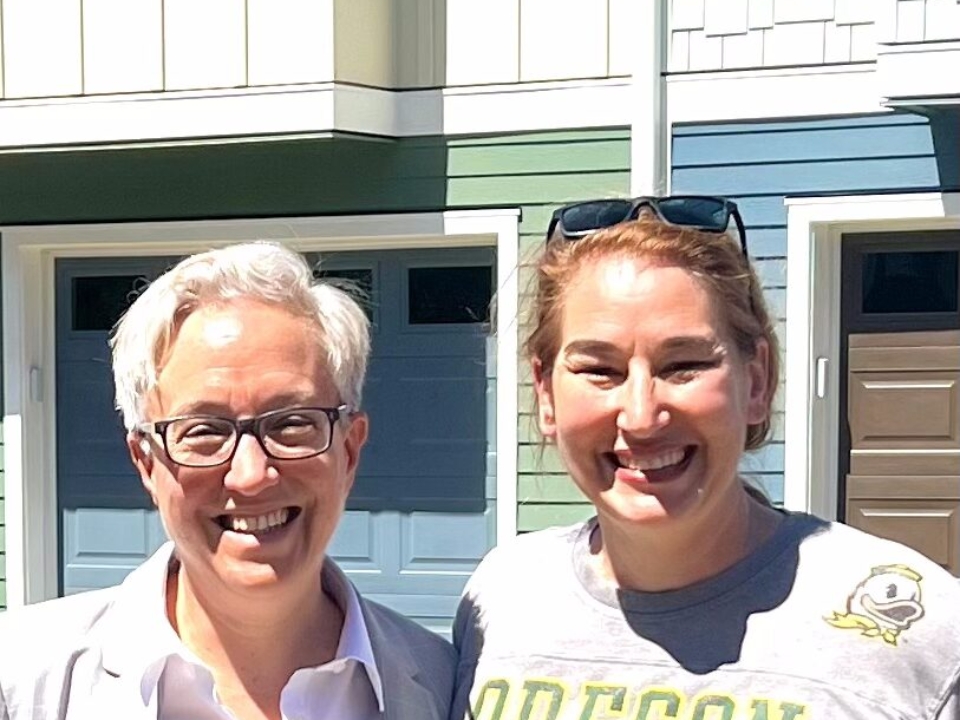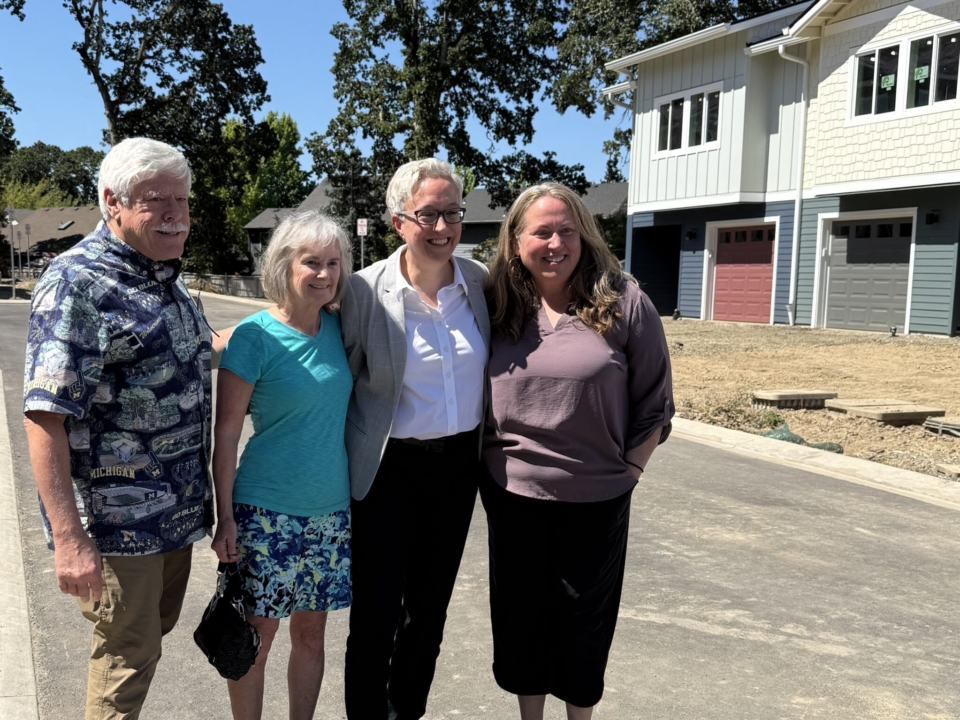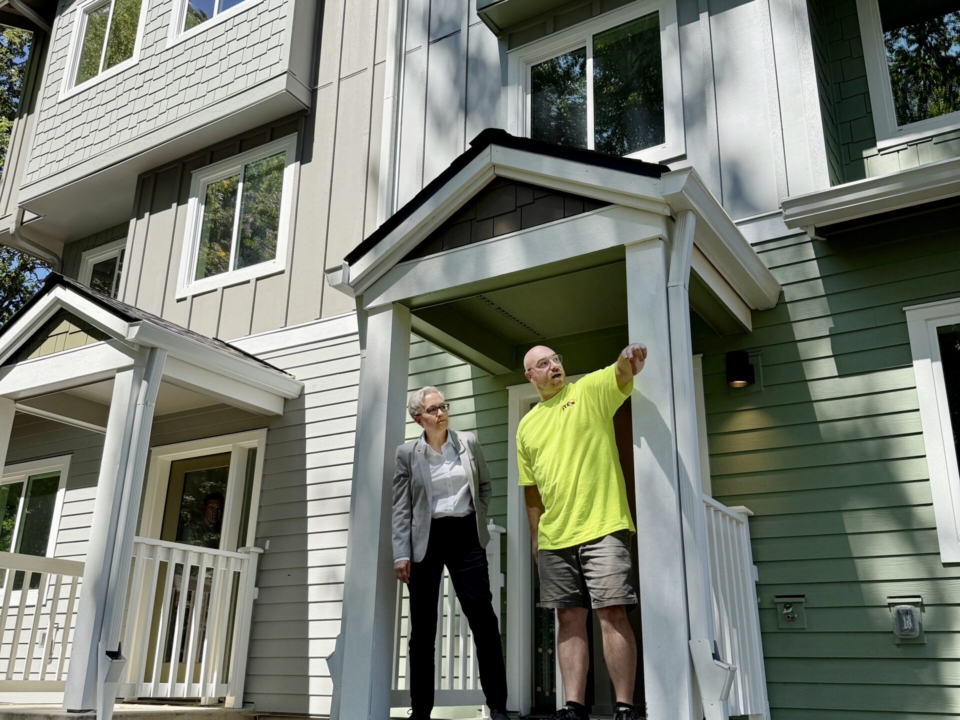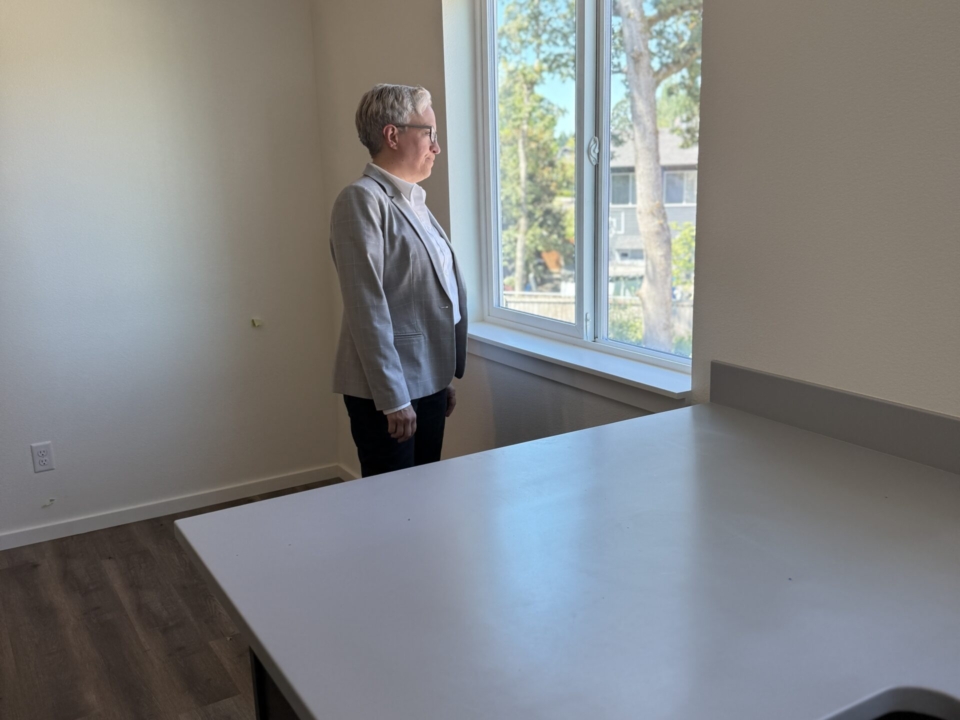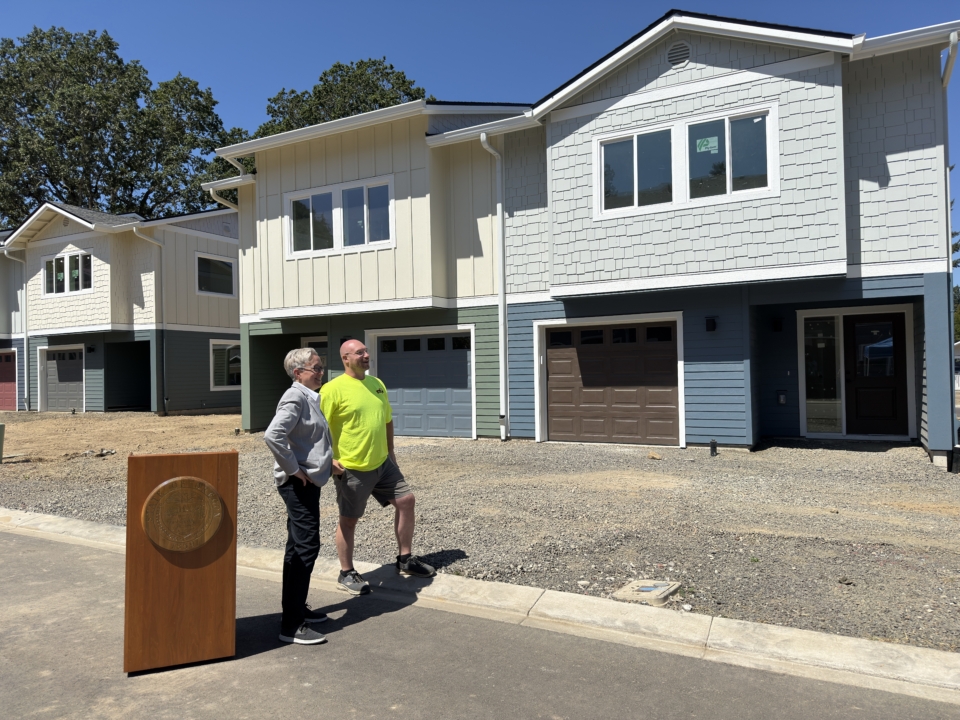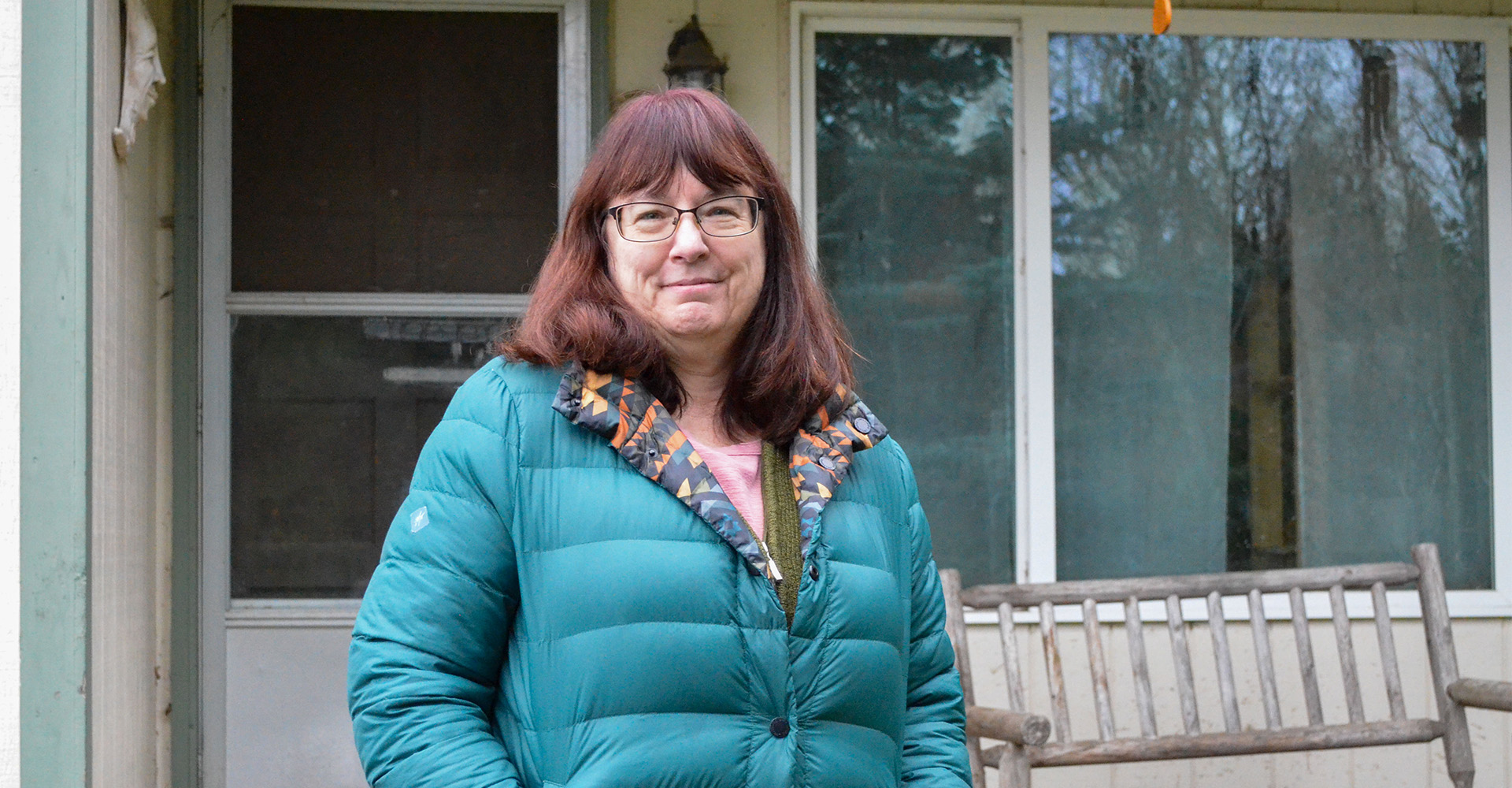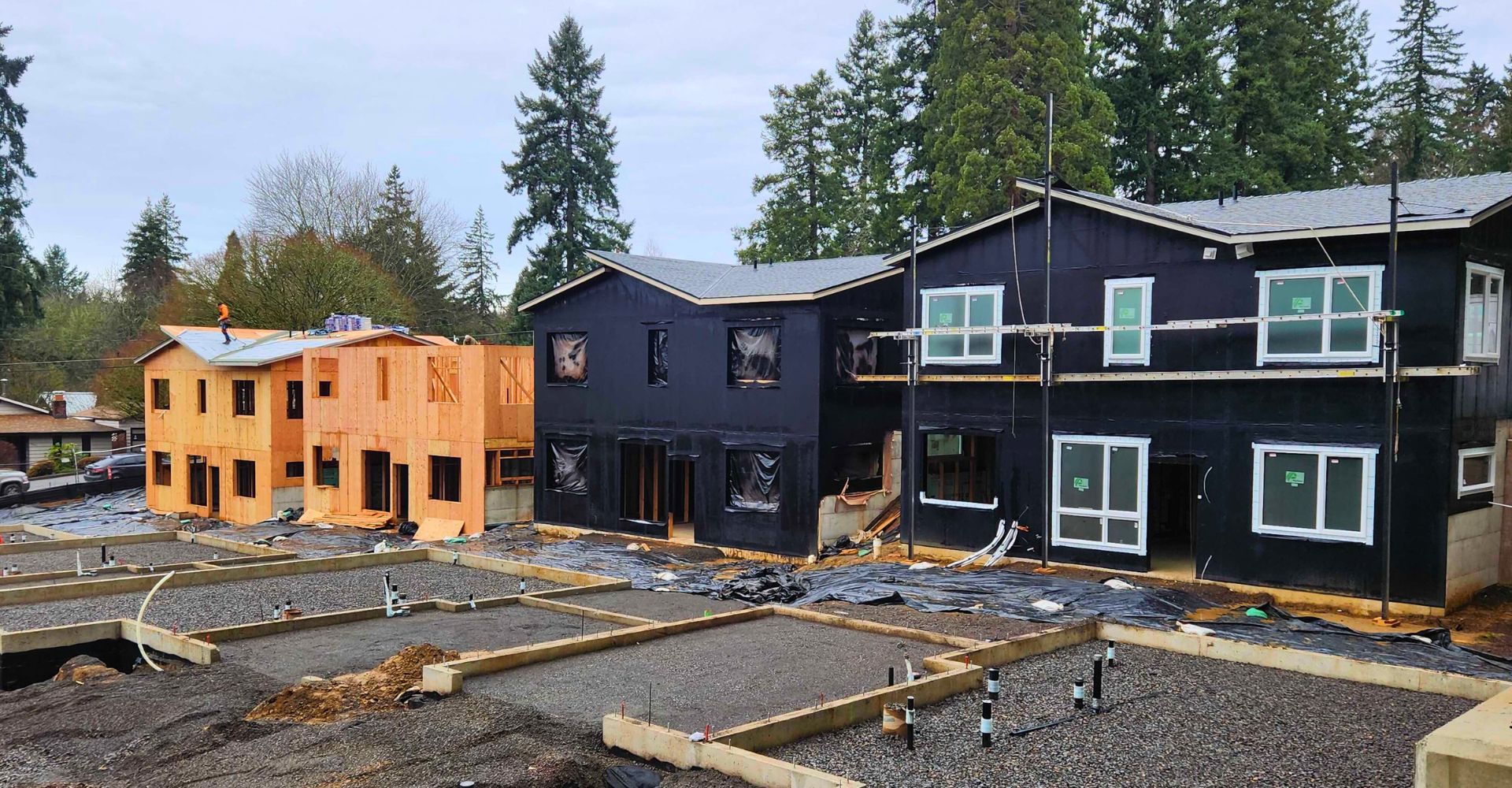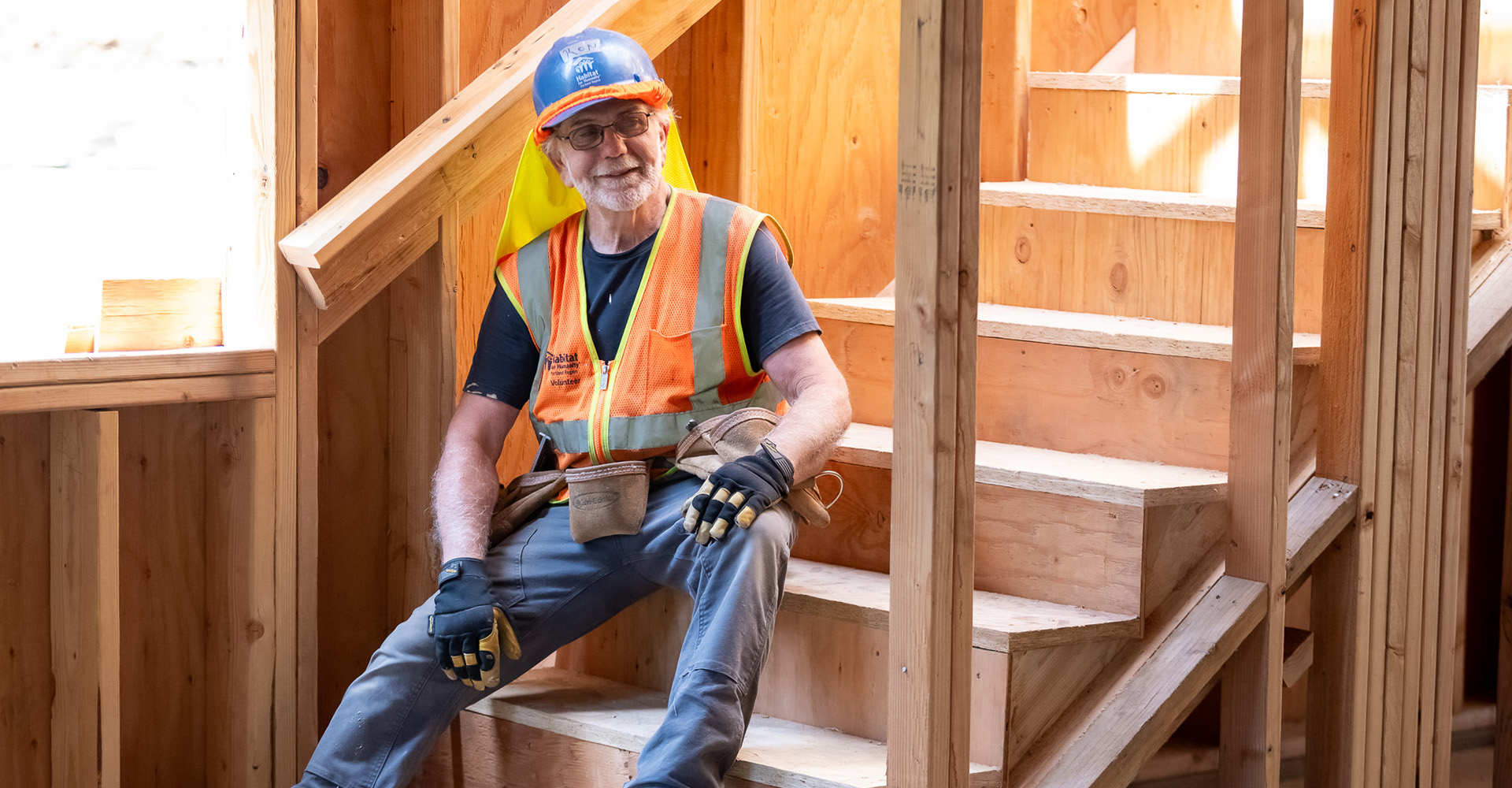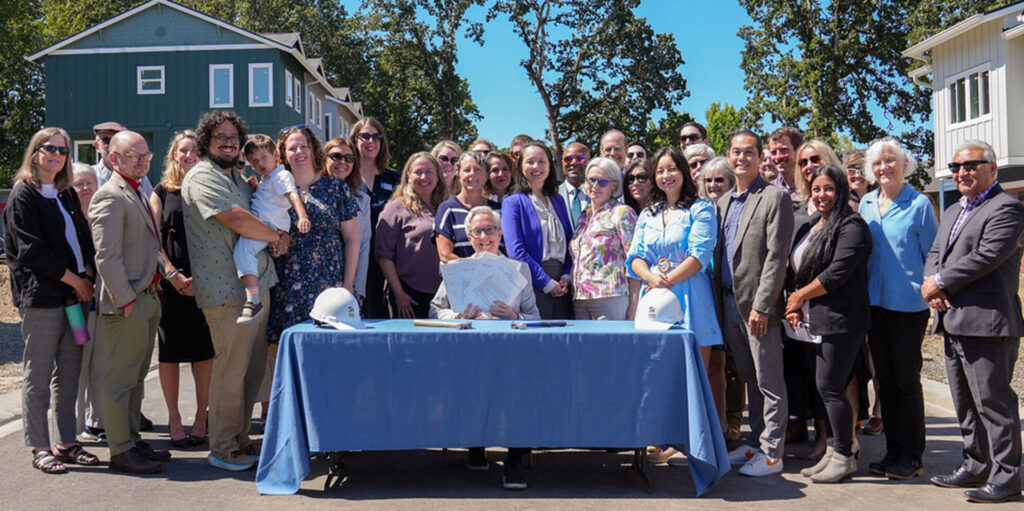
Written by Sarah Radcliffe, Habitat Portland Region’s Director of Government Relations
Oregon Governor Tina Kotek recently visited our Century Commons community in Hillsboro. She signed a package of middle housing bills that she described as “creative, practical solutions to increase the supply of homes as fast as we can.”
These bills have the potential to help fast-track Habitat homes, and other middle housing developments, by simplifying lot divisions and allowing the state to override local zoning to approve pre-permitted home designs.
Click through the photos to see Gov. Kotek meet Habitat staff, homeowners, and supporters, plus tour one of the homes.
Gov. Kotek praised both lawmakers and advocates for their work in the last legislative session to address Oregon’s housing supply crisis. She acknowledged that there’s still a lot of work to do.
Consistent with the broader housing landscape, this session delivered both wins and losses for the homeownership agenda.
At Habitat Portland Region, we’re proud to be part of the Unlocking Homeownership Coalition.
- Did you know that Oregon ranks 43rd in the nation for homeownership rates?
- Or that home prices in Oregon have nearly doubled in the past ten years?
The Unlocking Homeownership coalition galvanized homeownership champions, created new alliances that will continue in future sessions, and provided an accessible avenue for supporters to track developments and get engaged. Thanks to the participation by staff, volunteers, board and ambassador council members, supporters, Habitat homeowners, and our amazing partner organizations, we created a groundswell of buzz and excitement about homeownership at the Capital.
| Unlocking Homeownership supporters sent 4,441 messages to lawmakers! |
| Representatives from 45 organizations showed up to the Unlocking Homeownership Lobby day to meet with 67 legislators! |
The fruits of these efforts don’t always materialize right away, but here are some wins that we can celebrate in 2025:
- $100.9 million in LIFT Homeownership for the 2026-27 biennium. This funding represents a 25% increase over the current LIFT Homeownership allocation, and it provides the critical infrastructure and construction financing for all of Habitat Portland Region’s projects. In a session marked by tough and very tense budget decisions, this $100.9 million investment represents a critical win for affordable homeownership.
- HB 3746 Condo Construction Defect Liability Reform. Compared to other western states, Oregon provided a longer timeframe for homeowner associations to sue for construction defects. This drove up insurance costs, fueled a cottage industry of opportunistic lawyers, and ultimately suppressed condo production. The proportion of owner-occupied multifamily units permitted in Oregon is less than half the national average! HB 3746 brings Oregon in line with neighboring states and has the potential to spur development of entry-level homes. The bill also includes practical benefits for condo owners:
- requiring a series of inspections to reduce the risk of a hidden defect
- allowing the builder to fix any problems, thereby avoiding time-consuming litigation
- requiring notice to condo owners prior to litigation, since a pending lawsuit can affect each owner’s ability to sell
- HB 2698 requires Oregon to track progress towards improving our overall homeownership rate and addressing the systemic inequities that have limited access to homeownership for communities of color. This bill serves to memorialize the state’s recognition of the value of homeownership, the need for state leadership on asset-based antipoverty strategy, and the harsh reality that homeownership disparities have not improved since the passage of the federal Fair Housing Act. The preamble alone is recommended reading.
According to all reports, the 2025 legislative session was characterized by an especially tumultuous close. Oregon’s revenue forecast fell short of expectations, and uncertainty around federal spending intensified those pressures. Important bills dropped late. It was challenging to track the fast-paced, closed-door negotiations, and many lobbyists and advocates faced negative surprises. Several Unlocking Homeownership priorities that appeared on track all session failed in the last few weeks.
- $0 allocated for Down Payment Assistance. This program provides financial help to first-time and first-generation homebuyers, especially those from communities of color. The failure to invest in this program will intensify the barriers created by the steep home prices and interest rates of recent years.
- $0 allocated for the Homeownership Development Incubator Program. This is a flexible funding source to create new, entry-level homes. It has historically been a critical source for making projects work in rural areas.
- No long-term funding fix for the Individual Development Account (IDA) program. IDAs match the savings of Oregonians who are working hard to buy their first home or save for other goals like education or starting a small business. Despite a heroic effort by the IDA Coalition, two possible solutions to ensure a lasting funding source for this program failed. The existing tax credit (with a slight increase!) will continue to preserve some capacity in the program.
- Modeled after a groundbreaking study in Washington State, a Covenant Homeownership Study in Oregon would have examined the lasting impact of racially restrictive covenants and other state-sanctioned, race-based, exclusionary tools on today’s homeownership landscape.
Finally, the steep reduction in funding for Emergency Rent Assistance will be felt by Habitat’s community of prospective homebuyers. We are only able to build enough homes for roughly 1/5 of those who apply. Many households are left rent-burdened in precarious housing situations, paying market rate rent that’s both higher and more variable than a fixed affordable mortgage. Gouging services and assistance to help tenants stay housed will undoubtedly have a harsh impact on our communities.
Budget challenges are promised to continue through the short session in 2026. But the Unlocking Homeownership Coalition is committed to the long game. We’ll be back, elevating the importance of home – as a roof, an asset, and an anchor for households whose struggles will likely become more pronounced during these uncertain times.
Please join us! Learn more at homesfororegon.org
